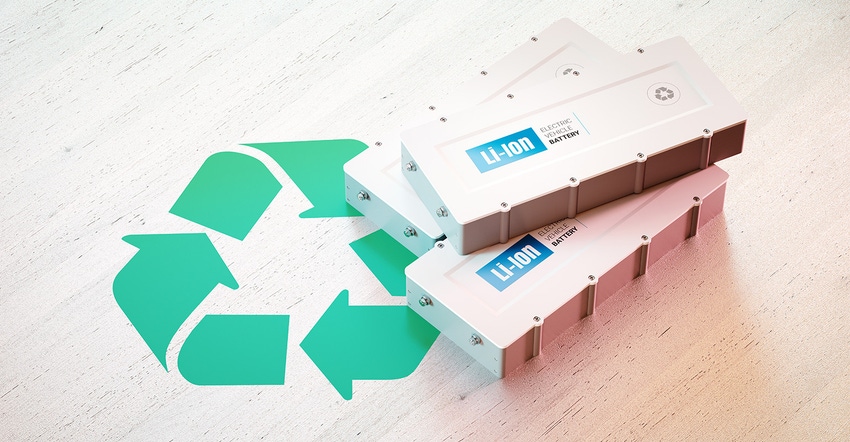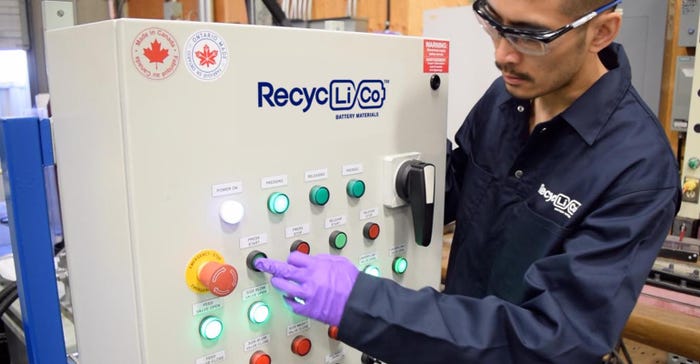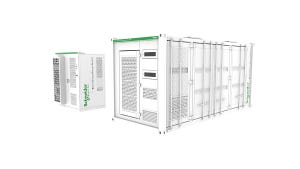Securing a Sustainable US Battery Supply Chain
Promoting collaboration, innovation, and responsible practices can enable a sustainable battery supply chain in the US. Nanoramic and RecycLiCo’s team-up makes the point.

The increasing adoption of electric vehicles (EVs) and the growing use of portable electronic devices have led to a surge in lithium-ion battery consumption around the World. Due to the batteries' numerous benefits—higher energy density, longer lifespan, etc.—the demand for lithium-ion batteries continues to rise, and so does the need for effective recycling processes.
Many end-of-life lithium-ion batteries end up in landfills or are improperly disposed of, posing serious environmental hazards due to their toxic chemicals. The US urgently needs to establish and promote a robust lithium-ion battery recycling infrastructure to address this issue and build a more sustainable future.
Lithium-ion battery recycling helps protect the environment and contributes to the circular economy by recovering valuable materials like lithium, cobalt, and nickel. By implementing efficient recycling methods, the US can reduce its reliance on raw material extraction, which often involves environmentally damaging mining practices. Additionally, recycling lithium-ion batteries can create a domestic supply of critical metals, reducing dependence on foreign sources and ensuring a stable supply chain for battery production. To meet the demands of an increasingly electrified future, it is essential for the US to invest in comprehensive recycling programs that foster innovation, minimize waste, and safeguard the environment for generations to come.
Sustainable battery supply chain
As the US strives to transition towards cleaner energy sources and electrification, a sustainable supply chain is essential to ensure a stable and reliable source of critical battery materials like lithium, cobalt, and nickel while reducing the environmental impact of mining and production. By establishing a sustainable battery supply chain, the US can mitigate the risks associated with resource scarcity and price volatility, foster domestic innovation, and promote a circular economy where materials are reused and recycled. Battery Technology recently reported that the U.S. Department of Energy has announced the availability of $192M for advancements in battery recycling.
Moreover, a sustainable supply chain will not only encourage research and development in battery technologies, but it can help minimize the environmental impact of battery production, reducing carbon emissions and protecting natural ecosystems.
Battery recycling collaboration
RecycLiCo, a battery materials company, and Nanoramic Laboratories—an energy storage and advanced materials company—have joined forces in a strategic collaboration to optimize the entire life cycle of lithium-ion batteries. This partnership leverages both companies' unique materials and technologies to establish an efficient and sustainable battery supply chain.
Nanoramic will provide its discarded Neocarbonix lithium-ion battery cathode electrodes, known for their high-performance nanocarbon mesh binding structure, for testing with RecycLiCo's proprietary recycling process, which can extract up to 99% of lithium, nickel, manganese, and cobalt from conventional waste cathode materials. The goal is to achieve mutual recognition and integration of Nanoramic and RecycLiCo technologies in commercial operations.

RecycLiCo ‘s engineer at work. Courtesy of RecycLiCo.
Nanoramic's NMP-free and PVDF-free electrodes are essential to this collaboration, which offer a solution to potential bans on harmful polyfluoroalkyl substances (PFAS) in lithium-ion batteries. By combining Nanoramic's advanced electrodes with RecycLiCo's expertise in converting waste cathodes into valuable battery-grade materials, the two companies aim to create a closed-loop system. This system involves recycling the product back to Nanoramic for cell production and further electrochemical analysis, contributing to a more sustainable and eco-friendly approach to lithium-ion battery manufacturing.
Nanoramic founder John Cooley stated, “Sustainability has always been at the heart of Nanoramic, so this exciting partnership with RecycLiCo is crucial in our mission to reduce the end-to-end impact of battery manufacturing and use. We're developing transformative technologies that are not just more sustainable, but enabling lower cost, faster charging, and higher performing batteries that will ultimately encourage more people to shift to electric vehicles, which will have huge benefits to society. We're proud that RecycLiCo is now joining us on that journey.”
About the Author(s)
You May Also Like





